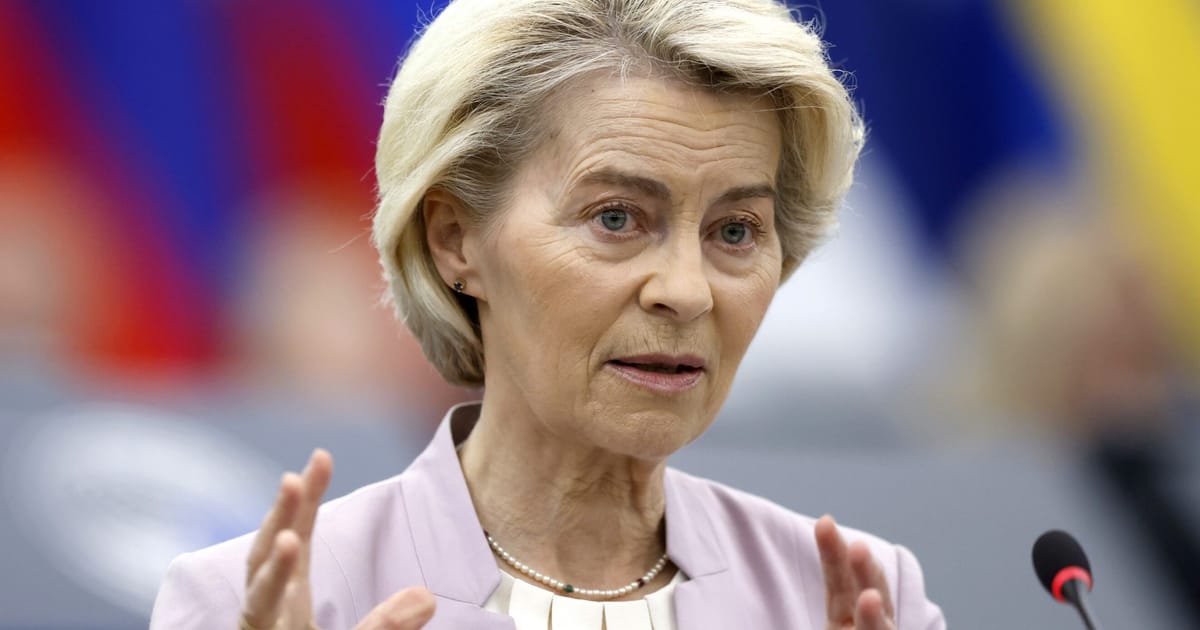

In a week marked by significant developments within the European leadership, several strategic moves signal a proactive approach toward meeting economic, political, and global challenges. As Europe’s leaders gather momentum ahead of crucial votes and negotiations, efforts to promote stability and preparedness take center stage.
At the heart of the European political landscape, European Commission President Ursula von der Leyen has made a substantial budgetary concession aimed at gaining the favor of Members of the European Parliament (MEPs) ahead of an impending no-confidence vote. This proposal promotes a stronger role for local regions within the European Union, reflecting a commitment to decentralization and more inclusive governance. Such an approach not only seeks to solidify political support but also aligns with broader strategic goals to enhance regional involvement and ensure more responsive policymaking.
Meanwhile, in Germany, Chancellor Friedrich Merz has expressed cautious optimism regarding the potential conclusion of a robust trade agreement with the United States. Engaging in close dialogue with U.S. President Donald Trump and the European Commission, Chancellor Merz foresees a positive outcome in the coming days. Such a development is likely to bolster transatlantic trade relations, providing a valuable opportunity for economic growth and the strengthening of diplomatic ties. As two substantial economic powers, a trade deal between the EU and the U.S. holds promise for mutual benefits, enhancing market access and fostering greater cooperation in various sectors.
In response to global uncertainties, the European Commission unveiled a forward-thinking strategy aimed at boosting resilience across the continent. Acknowledging the importance of preparedness, the Commission’s proposal emphasizes the establishment of strategic stockpiles. These would include essential resources such as food, medicine, generators, and raw materials, designed to mitigate the impacts of potential military invasions, pandemics, or natural disasters. Additional considerations for emergency supplies encompass water purification products, drones, mobile bridges, and equipment to repair critical undersea infrastructure. This comprehensive approach underscores a commitment to ensuring that Europe’s nations can effectively respond to diverse challenges, safeguarding both security and public welfare.
The diversity of Europe’s responsibilities is further highlighted by Portuguese President Marcelo Rebelo de Sousa’s visit to São Tomé and Príncipe to commemorate the African nation’s 50th anniversary of independence. Accompanied by a delegation including notable figures such as Paulo Rangel and Ana Isabel Xavier, President Rebelo de Sousa’s presence underscores the significance of enduring partnerships and historical ties between Portugal and São Tomé and Príncipe. Such diplomatic engagements reaffirm the importance of maintaining strong international relationships grounded in shared history and mutual respect.
Together, these developments reflect Europe’s concerted efforts to address both internal and external challenges through strategic foresight and diplomatic engagement. The initiatives encompass diverse spheres, from political maneuvering within the European Union and critical trade negotiations with the United States to far-reaching plans aimed at ensuring the well-being and security of its citizens. As the European leadership continues to navigate a complex global landscape, these efforts highlight an overarching dedication to fostering sustainable growth, resilience, and unity.
In summary, the current landscape within European governance and diplomacy is characterized by a balanced mix of proactive strategies and measured optimism. From important budgetary allocations that draw regional participation to transatlantic dialogues and comprehensive preparedness plans, European leaders are setting the stage for a future of interconnected strength and resilience. Such endeavors, grounded in cooperation and forward-thinking policies, aim to bolster Europe’s position as a collaborative and adaptable global leader.
Source: {link}
